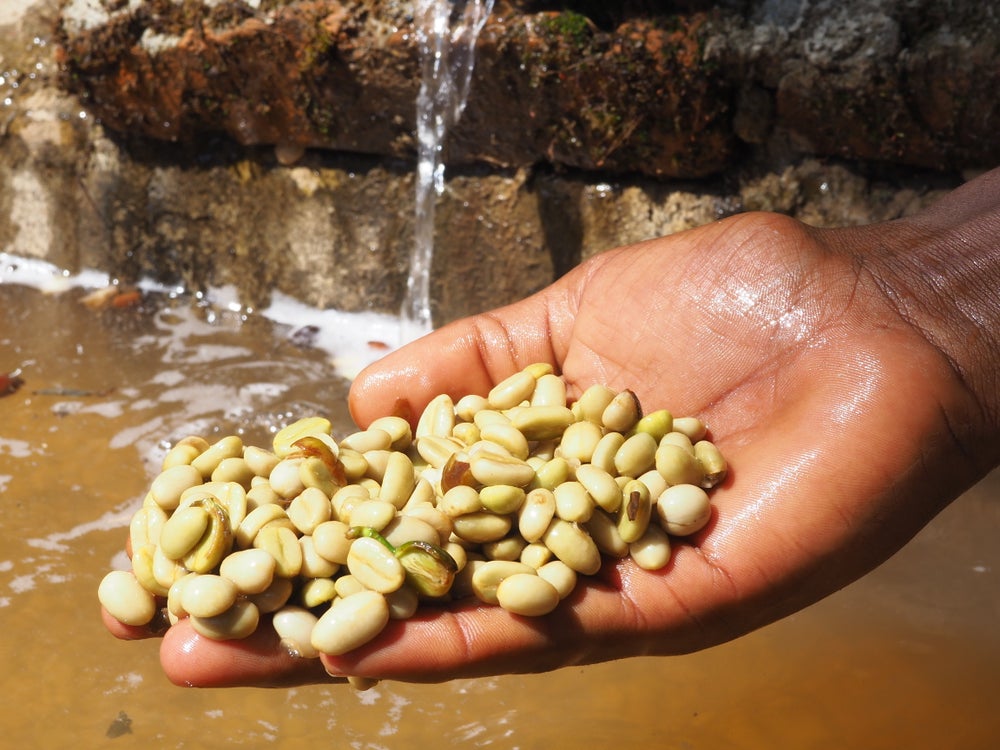From the Field
Monday, May 8, 2023
Ethiopian Coffees Arriving Soon!
Ethiopian coffees are arriving soon. Emanuel Woldemariam, QC & Supply Chain Coordinator at Sucafina Ethiopia, wrote this crop update to share insights into the quality of this year’s Ethiopian crop.

We are optimistic about a good quality crop. 2022/23 was an on-cycle year and volumes will also be good. The 2022/23 crop developed well under sunny and dry conditions and the official USDA coffee production projection for the current year has increased slightly to 8.25 million 60kg bags.
At the same time, however, we have witnessed throughout the season that cherry prices at the farm gate have continuously risen and have reached unprecedented levels. Cherry has been selling at an extremely high price with the average price of 71 Birr per kg, or 364 USC/lb of green coffee. In some regions of Sidamo and Yirgacheffe, the price has even reached 100 Birr per kg. This is before we add all costs from farm gate to FOB.
In particular, fuel prices have more than doubled in the last few months. Other costs such as warehousing and dry milling have also increased significantly.
In part due to these high costs, washing stations throughout the season were working under capacity. Washing station owners bought less cherry and typically only processed enough cherry to fulfill existing commitments. Due to these high prices, it did not make commercial sense for stations to purchase additional cherry in anticipation of further business. Farmers were happy to sell less since they felt that the price of 50 to 60 Birr per kg is too low. Instead, farmers processed a larger portion of their crop themselves. At home, they produce Natural coffees to sell at a later date.
The amount of cash distributed by exporters to their washing stations and agrabe partners (middlemen who purchase from farmers and sell to exporters) to finance cherry buying has also been very low. Many shippers that advanced cash to middlemen last season did not do so this season since their experience they poor quality at inflated prices last year. The cash squeeze has also reduced washing station purchasing. All this has led to a reduction in the percentage of Fully washed coffees that are available this season. The focus at washing stations has been on producing high-quality coffees for the specialty market that attracts higher prices, processing exotic micro lots and processing higher commercial coffees that will command a premium over normal Grade 2 coffees.
All in all, this has led to low export registrations. Typically, by the end of March operations at the Addis Ababa warehouse for the new crops would have been in full swing as exporters get ready to mill and ship their coffees. This year the picture could not be more different. With trading at a standstill, most mills in Addis are sitting idle and the CTA reports are showing a measly 8,690MT of coffee being exported in Jan (only the second time the number has been so low in the last five years) & 16,553MT in Feb. Slow registrations and lower exports are causing concern for the ECTA. The ECTA has been putting pressure on shippers to sell and ship, especially old crop stocks still remain unshipped in the country. Meanwhile, minimum registration prices for new crop remain quite high. The slow start to the year and farmer price expectations not being met mean we expect below-average exports to continue.
Changes in shipping and pricing can affect farmers significantly. Our Lalisaa project, which has worked with local Ethiopian farmers since 2019, aims to improve yields, quality and the prices farmers receive by building long-term relationships with dedicated coffee farmers in Ethiopia. Farmers receive training in Good Agricultural Practices and post-harvest techniques, helping them improve quality and yields. This year, Lalisaa was able to deliver strong prices to participating farmers. Their coffees will start shipping at the end of May. Get in touch with your trader to learn more and book now.